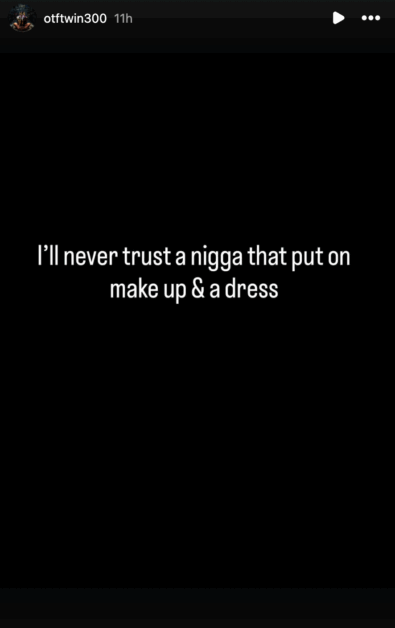Hip-hop has always been about reinvention. From flipping James Brown breaks into block party anthems, to rappers reinventing themselves across albums, the culture thrives on taking something familiar and giving it a fresh spin. What’s old becomes new, what’s underground becomes mainstream, and what starts in the Bronx ends up shaping the world.
So, when you look at the digital gaming industry — especially the world of UK casino sister sites — you see a surprising parallel. Just like mixtape culture and remixes, casino operators are building families of sites that share the same DNA but flip the style, branding, and experience to keep things fresh.
It’s a remix economy, and hip-hop fans might recognize the playbook.
What Are “UK Casino Sister Sites”?
If you’re new to the term, “sister sites” are online casinos operated by the same parent company. They might run on the same software, share licensing under the UK Gambling Commission, and even offer similar bonuses. But the branding, themes, and sometimes the vibe are different — giving players variety without leaving the ecosystem.
For example, one company might operate multiple platforms: one styled around classic Vegas energy, another themed for sports fans, and another tailored for casual slot players. All are connected, but each has its own look and feel.
In short, UK casino sister sites remix the experience while keeping the beat steady — just like how one producer can make three completely different tracks from the same sample.
The Hip-Hop Parallel: Remixing and Repackaging
Think about it:
- The Mixtape Era – DJ Clue, Kay Slay, and Drama built empires by repackaging existing beats with new verses. It was the same foundation, but with fresh energy and perspective.
- Labels and Imprints – Def Jam had Roc-A-Fella, Murder Inc., and Ruff Ryders under its umbrella. Each imprint carried its own identity, but the machine behind it was the same.
- Streaming Playlists – Today, the same song might live on multiple playlists, each reaching a different audience but generating streams for the same artist.
That’s exactly how UK casino sister sites work. Operators understand that audiences are diverse. Not everyone connects with the same aesthetic, but they still want the same level of trust, bonuses, and community. By remixing the presentation, companies create multiple entry points for fans while keeping them within their brand family.
Loyalty and Retention: Lessons from the Culture
One of the big reasons sister sites exist is retention. Getting a new player costs money. Keeping them engaged across multiple platforms is more sustainable.
Hip-hop does the same thing. Artists drop deluxe editions, side projects, and collaborations — not always to reinvent the wheel, but to keep fans locked in. If you’re a Kendrick Lamar fan, you’re not just streaming his albums. You’re checking guest verses, unreleased tracks, and even digging into pgLang’s brand identity.
Casinos play a similar game. If you’re loyal to one operator, they don’t want you leaving for competitors. Instead, they give you another option in-house — through sister sites — to keep you engaged while exploring new experiences.
The Psychology of Familiar but Fresh
Why does this strategy work? It’s the same reason producers like Metro Boomin or Pharrell can leave their fingerprints on a track without making it repetitive. Audiences crave familiarity but get bored with monotony.
- In Music: You hear a familiar tag — “If Young Metro don’t trust you…” — and it builds trust while still giving you something new.
- In Gaming: A player finds comfort knowing that a new casino site they stumble on is part of a network they already trust. The license, payout speed, and support are familiar, even if the graphics and bonuses look brand new.
That balance of trust and novelty is exactly why UK casino sister sites succeed.
Risk, Reward, and Hustle
Hip-hop is rooted in hustle — turning risk into reward. Whether it’s an MC battling on the corner or an entrepreneur launching a label, the energy comes from betting on yourself.
The gaming industry mirrors that spirit. Players take risks for potential rewards, and casinos build ecosystems designed to amplify the experience. A UK casino sister site isn’t just about variety — it’s about creating multiple arenas for the hustle, just like how an artist might conquer albums, mixtapes, merch, and festivals all at once.
Business Takeaways for Creators
For artists, bloggers, or entrepreneurs reading this, the “sister site” model carries some valuable lessons:
- Diversify Your Presentation – Just as labels launch multiple imprints, creators should explore side projects, collabs, or alternate brands to reach new audiences.
- Leverage Familiarity – Keep your audience grounded with a recognizable core (your voice, your message, your brand) while experimenting with presentation.
- Retain Your Tribe – Don’t make fans start from zero with each new project. Build loyalty by creating connected experiences across your ecosystem.
The casino industry figured out how to remix one foundation into multiple touchpoints. Artists and businesses can do the same.
Where Hip-Hop Meets Digital Hustle
AllHipHop has covered how rappers are expanding beyond music — into tech startups, AI tools, crypto, and gaming. This crossover between culture and commerce shows how fluid the modern hustle is.
Looking at UK casino sister sites through a hip-hop lens isn’t about glorifying gambling — it’s about recognizing a strategy: take what works, remix it, and expand your reach.
It’s the same blueprint that’s powered hip-hop for five decades.
Conclusion
At first glance, hip-hop and casino sister sites might seem worlds apart. But dig deeper, and they share the same DNA: remixing foundations, diversifying experiences, and building loyalty through familiarity with a twist.
Whether you’re a DJ flipping samples, an MC reinventing your sound, or a digital hustler building platforms, the lesson is clear: success often comes from creating variations on what already works.
So next time you hear about UK casino sister sites, don’t just think of it as gaming jargon. Think of it as the business equivalent of a remix — a strategy hip-hop has been perfecting since day one.




